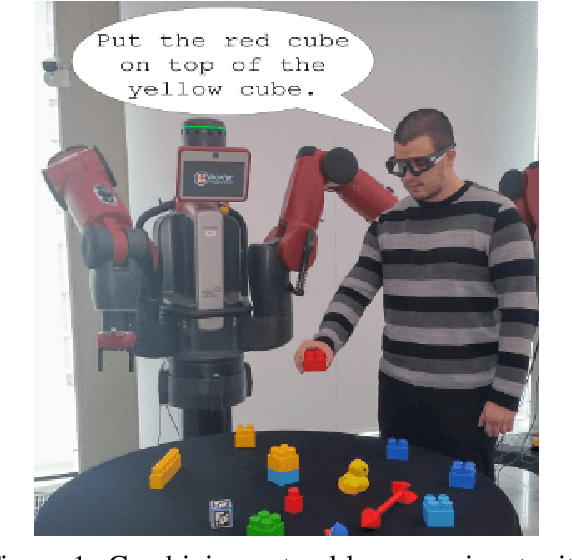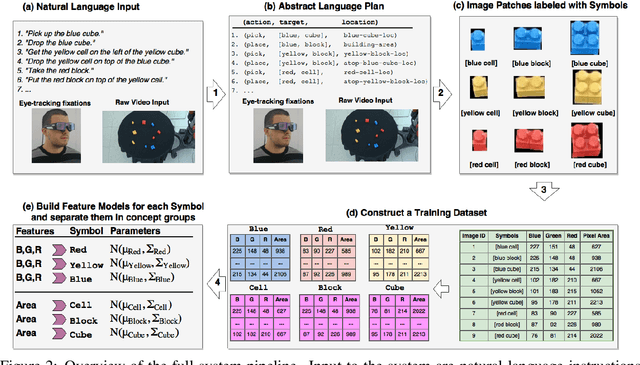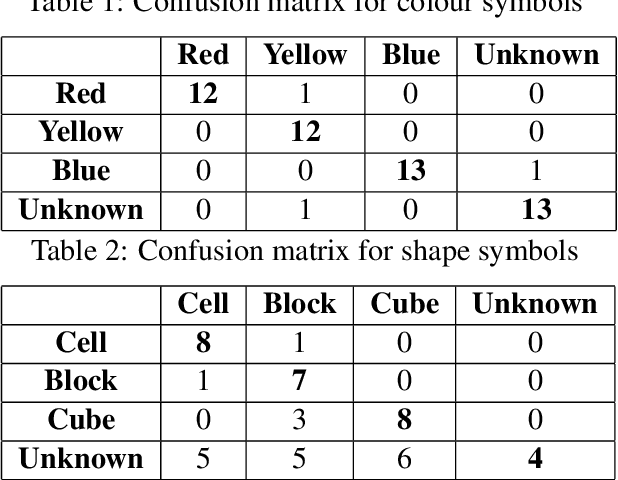Grounding Symbols in Multi-Modal Instructions
Paper and Code
Jun 01, 2017



As robots begin to cohabit with humans in semi-structured environments, the need arises to understand instructions involving rich variability---for instance, learning to ground symbols in the physical world. Realistically, this task must cope with small datasets consisting of a particular users' contextual assignment of meaning to terms. We present a method for processing a raw stream of cross-modal input---i.e., linguistic instructions, visual perception of a scene and a concurrent trace of 3D eye tracking fixations---to produce the segmentation of objects with a correspondent association to high-level concepts. To test our framework we present experiments in a table-top object manipulation scenario. Our results show our model learns the user's notion of colour and shape from a small number of physical demonstrations, generalising to identifying physical referents for novel combinations of the words.
 Add to Chrome
Add to Chrome Add to Firefox
Add to Firefox Add to Edge
Add to Edge